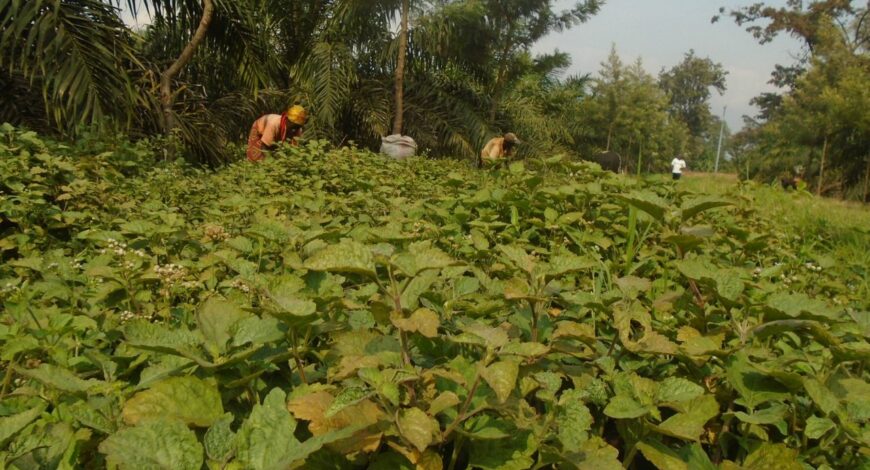History and origin
The name Patchouli dates back to the 19th century, with its origins in a Tamil name composed of “patch” meaning green, and “ilai” meaning leaves.
Native to Southeast Asia, Patchouli is mainly produced in Indonesia, China, southern India and the Philippines. Patchouli leaf comes from the Lamiaceae botanical family. A perennial tropical herb, patchouli grows as a bush.
Associated with the hippie trend of the 1960s, Patchouli has had its difficult years. At the time, perfuming oneself with Patchouli was an ill-perceived gesture. It evoked a spirit of rebellion and freedom, a perfect match for the fragrance’s exotic notes. It wasn’t until the 90s that Patchouli was brought back into fashion with the release of numerous perfumes containing it.
Scent and use
Its leaves are harvested throughout the warm season, from May to September. When harvested, the fresh foliage is odorless. It’s only after fermentation that Patchouli’s intoxicating scents become recognizable.
Today, Patchouli is an essential raw material in perfumery, for both men’s and women’s fragrances.
Its warm, woody notes are a perfect match for vetiver, cedar and sandalwood. Perfumers appreciate its dark aromatic notes, which add depth and character to the fragrance. Patchouli also brings out the fresh notes of oriental or chypre fragrances. Indeed, it lends sensuality and charisma to fragrances, especially when combined with sweet notes such as vanilla, incense, cistus, rose or jasmine.
Our sourcing

RUGOFARM was set up in 1990 by a group of Burundian and German investors to develop breeding and promote the essential oil industry in Burundi. They began by testing the cultivation of Eucalyptus, Vetiver and Lemongrass, but the project had to be put on hold due to the civil war in 1993.
In 2001, the project was resumed with the importation of 10,000 Patchouli cuttings from Indonesia, with financial support from the Alpes Maritimes Chamber of Commerce and Industry and technical assistance from Astier Demarest.
In 2004, the first harvest took place after several trials. After drying, the leaves were sent to Grasse for distillation trials, which proved conclusive.
Three years later, still with the help of Astier Demarest, RUGOFARM set up its Patchouli distillation unit in Citiboke, and in 2010, the company exported its first Patchouli essential oil to France.
Their organization

As a central operator in the industry, RUGOFARM supplies Patchouli seedlings to growers and transfers to them the technology for cultivating the plant, which is not traditionally grown in Burundi.
In return, the growers sell the Patchouli leaves to the RUGOFARM distillation plant, which dries and distills them.
The Patchouli essential oil produced by RUGOFARM is exported to Astier Demarest, who markets the product in France and Europe.



